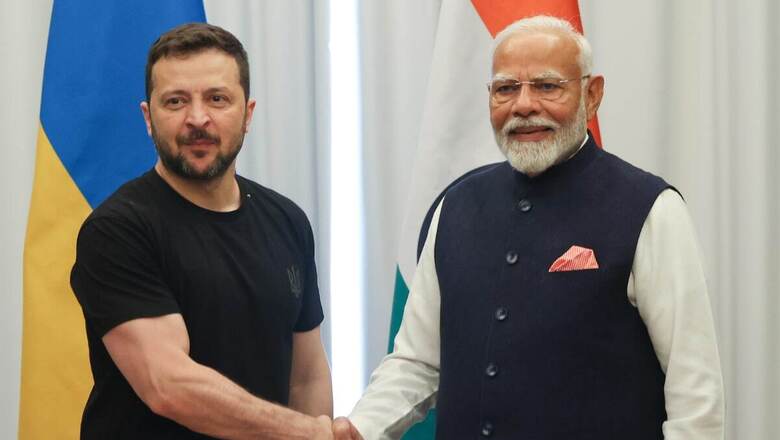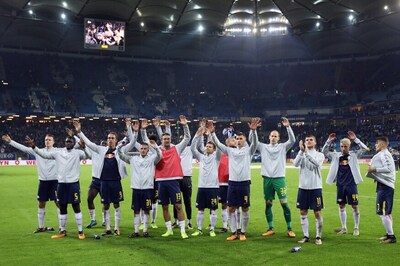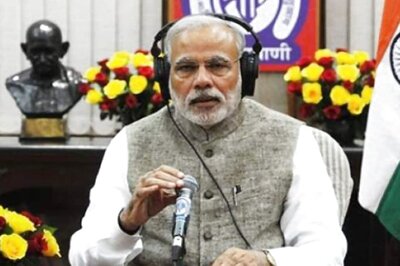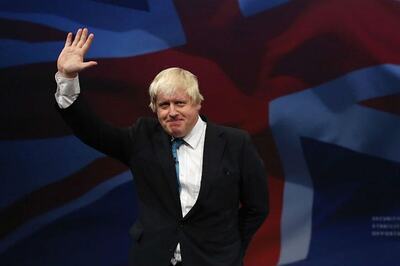
views
Rewind to July 8. On that bright blue-sky day in Moscow, Prime Minister Narendra Modi landed to meet with Russian President Vladimir Putin. Within minutes, photos of President Putin enveloping his “dearest friend” Prime Minister Modi in a bear hug went viral.
The optics couldn’t have been more jarring. Barely hours earlier, a Russian bombing raid had killed at least 41 people in Ukraine, including at a children’s hospital in the capital Kyiv. The West was outraged at this “depraved war crime”. President Putin may have been “delighted to see” Prime Minister Modi but leaders of the West – from Warsaw to Washington – were seeing red.
The US expressed concern and urged Prime Minister Modi to emphasise Ukraine’s territorial integrity during his talks in Moscow. The Biden regime’s envoy to Delhi even warned India that it shouldn’t “take its friends for granted”. Embattled Ukraine’s beleaguered President Volodymyr Zelenskyy was positively apoplectic and spat out his disapproval on social media site X, describing the meeting as “a huge disappointment and a devastating blow to peace efforts to see the leader of the world’s largest democracy hug the world’s most bloody criminal in Moscow on such a day”.
Now, barely six weeks after his very public moral excoriation of Prime Minister Modi, Ukraine’s conscientious Chief Executive Officer is rolling out the red carpet to welcome the leader of the world’s largest democracy. The betrayal seemingly forgotten, Zelenskyy will now put his best foot forward to court Modi in the hope that the “leader of the world’s largest democracy” will be persuaded enough to side with Ukraine.
Zelenskyy’s change of heart is a stunning example of moral elasticity. Some of his well-wishers in the West are already souring at Zelenskyy’s about-face. But instead of shaming him for his opportunism, the Ukrainian President must be admired for his pragmatism. Zelenskyy has clearly understood that in the shape-shifting landscape of global diplomacy, there are no permanent friends only permanent interests. President Zelenskyy knows the value of Prime Minister Modi’s considerable utility as a bridge to President Putin.
If Zelenskyy doesn’t mind who Prime Minister Modi supped with the night before then why should his other Western cohorts? Why must they urge India to pick a side? Why must they morally blackmail New Delhi into believing that it is under an obligation to “get off the fence” and condemn Russia’s invasion of Ukraine?
Indeed, India is within its rights to pose a few questions of its own to the West.
When did the West intercede on India’s behalf? And beyond India, when did the West show moral resoluteness to resolve conflicts in the Global South?
China’s expansionism in its sphere of influence is at par with Russia’s neo-imperial acquisitiveness in its backyard Eastern Europe. China has routinely trespassed in both the subcontinent and the South China Sea. Yet, its flagrant violations of international law – both on land and at sea – have never moved the West to impose crippling economic sanctions. Why, one wonders?
“Modi-plomacy” with its emphasis on “pluri-lateralism” has given India the luxury to not pick a side except that of enlightened humanism. And it is in that context that Prime Minister Modi was able to famously counsel the West when he said, “This is not an era of war, but it is a time of dialogue and diplomacy.”
Importantly, he has been heard in both Moscow, Kyiv, and Brussels. If anything, it is the West that is obliged to heed Modi’s wise counsel and end a war that it has self-indulgently foisted upon the rest of humanity.
Views expressed in the above piece are personal and solely those of the author. They do not necessarily reflect News18’s views.




















Comments
0 comment